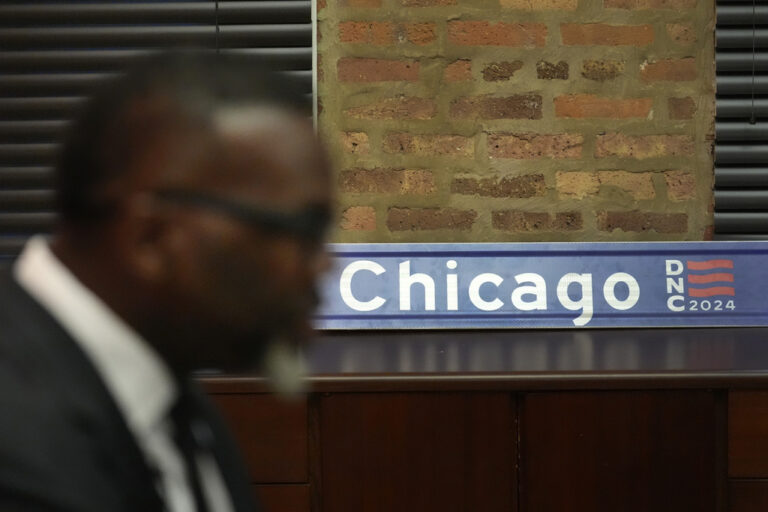
“Why would people in Wisconsin want to have a beer with you?” a reporter asked JD Vance in August. Even after a strong debate performance, the answer to the reporter’s question remains a mystery. There is little reason to believe that Vance, if he were running at the top of the ticket, would fare very well among Wisconsin voters. The Badger State was the so-called “tipping point” of the 2020 presidential election, and will continue to be a key battleground in 2024 and beyond.
Vance’s unpopularity and difficulty campaigning suggests that he would be a poor successor for former President Donald Trump as the Republican nominee, whether in 2028 or beyond. He was elected to his U.S. Senate seat in 2022, defeating Rep. Tim Ryan with 53.1 percent of the vote and a 6.2 percent margin of victory. On the same ballot, incumbent Ohio Gov. Mike DeWine handily beat his Democratic opponent with 62.5 percent of the vote and a 25 percent margin of victory. DeWine, in contrast to Vance, has publicly fought with Trump and does not support him with the same unquestioning vigor.
If Trump wins the presidency in November, a successor will be needed by the 2028 election. Despite his electoral failings, Vance would be the natural choice if he serves as the Vice President. A loss in 2024 would make the GOP’s future hazier. Trump has stated that it is unlikely he will run for president in 2028 if he loses this November, but even if he reverses course the party will be forced to hold an open primary process. When that time inevitably comes, Republicans seem to have few options that could feasibly win both the Republican nomination and a general election.
Any Republican politician like DeWine, who is electorally successful and critical of Trump, would struggle to get past a Republican primary. Nikki Haley’s anti-Trump campaign for the nomination failed tremendously, garnering her wins in only two primaries: D.C. and Vermont. Trump’s influence over the party’s base will not evaporate if he loses in November, so the eventual nominee will likely be supported by him.
On the other hand, a pro-Trump Republican could receive Trump’s endorsement and secure the nomination. Unfortunately for the GOP’s prospects, however, pro-Trump Republicans have a less-than-stellar record in winning elections. Vance was not the only Trump-endorsed candidate in the 2022 midterms that underperformed in competitive races. In Pennsylvania, Trump-backed Mehmet Oz lost a critical U.S. Senate election, and Trump acolyte Doug Mastriano was resoundingly defeated in the state’s race for governor. Josh Shapiro, who defeated Mastriano, won by the largest margin of victory for a non-incumbent gubernatorial candidate since 1946. Arizona’s Democratic Senator Mark Kelly won re-election against Blake Masters, another key Trump-backed candidate. Adam Laxalt, a 2020 election denier, lost a Senate race in Nevada even while the state elected a new Republican governor (who accepted the results of the 2020 election).
These are only a few examples of a much greater trend; Republicans who embrace Trump to an extreme degree are typically not rewarded in general elections. Much of Trump’s appeal is unique to him as an individual, not necessarily stemming from his policy positions but from his public persona. If his ideology on its own was a draw, then other Republicans theoretically could find similarly strong bases of political support by simply parroting his talking points. Trump parodies like Vance, Oz, Mastriano, Masters, and Laxalt routinely losing or underperforming in competitive elections illustrates the political weakness of Trumpian rhetoric in the broader electorate.
Until the GOP moves away from knock-off Trump candidates, the party will continue to underperform in elections. This shift could happen relatively quickly, maybe even by the 2028 election. It could also be a slow, arduous process over several election cycles. In any case, the party is bound to evolve as the value of Trump-like politicking is diminished with Trump’s political exit.
The Republican Party could return to the traditional conservatism dominating much of its modern history, or maybe become something entirely new. One cannot predict exactly how the party will change, only that it inevitably will. Republican politicians would be best served by changing sooner rather than later. If the current trend continues, the party will only struggle more and more to win power.
The Zeitgeist aims to publish ideas worth discussing. The views presented are solely those of the writer and do not necessarily reflect the views of the editorial board.



